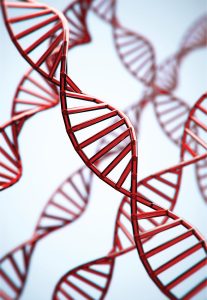Genetic testing involves examining your DNA—the chemical database that carries instructions for your body’s functions—and can reveal changes (mutations) in your genes that may, or may not, cause diseases.
The chances of you or your children inheriting some genetic mutation depends on a variety of factors including your parents’ genes, your genes, the disease itself, and mathematical odds.
Why test?
Genetic testing plays a vital role in determining the risk of developing certain diseases as well as determining future treatment, if any. The procedure itself is relatively simple, usually done with a sample of blood, saliva, or tissue, and you might undergo genetic testing either at home or in a medical office in order to:

• Diagnose a disease
• Determine the cause of a disease
• Determine treatment options for a disease
• Determine your risk of getting a disease that might be prevented
• Determine the risk of passing a disease on to your children
• Screen your embryo, fetus, or baby
Test results
These are some of the things you need to know about test results:
 • A positive test result does not mean you will definitely get a particular disease. It may just tell you that you have a certain genetic mutation and an increased risk for the disease. For example, having a BRACA1 or BRACA2 gene means you’re at a high risk for breast cancer, but it doesn’t mean with certainty you’ll get cancer. In some cases, lifestyle changes may reduce your chances of developing a disease.
• A positive test result does not mean you will definitely get a particular disease. It may just tell you that you have a certain genetic mutation and an increased risk for the disease. For example, having a BRACA1 or BRACA2 gene means you’re at a high risk for breast cancer, but it doesn’t mean with certainty you’ll get cancer. In some cases, lifestyle changes may reduce your chances of developing a disease.
• A negative result does not guarantee you won’t get a disease. Many cancers, unfortunately, don’t have a genetic component. Only about one-third of people with breast or colon cancer have a family history, meaning that many people get these cancers without inheriting a gene for it.
• Some tests have inconclusive results. Everyone has gene variations, and sometimes it’s difficult to tell the difference between a disease-causing gene and a harmless variation.
Whatever the test outcome, talk with your doctor or genetic counselor about your questions and concerns. They can help you understand what the results mean for you and your family.










